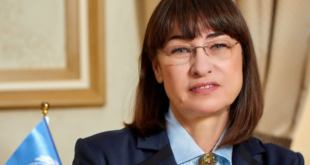Egypt’s dilemma in Libya lies between needing to stop Turkish interference while minimising political and geographical divisions in the interest of to the conflict’s resolution.
Ziad Akl
Libya has been witnessing a very rapid pace of political and military transformation recently. No doubt Libya is an integral element of Egypt’s national security strategy, either due to border security, countering radicalisation and terrorism or combating illegal immigration across the Mediterranean, all core Egyptian strategic interests. However, the latest developments in Libya show a dual path. One has to do with new international and regional alliances which Egypt is trying to mobilise to stop Turkish intervention in Libya. The second is related to military developments efforrs to secure a state of ceasefire and ensure that the line between the east and the west at the city of Sirte is not crossed by any military force.
Last week, the international community has been moving on the Libya file. France, Italy and Germany declared their refusal of any foreign intervention in Libya and made clear the necessity to return to a political process under the supervision of the United Nations. Moreover, tensions between France and Turkey have been escalating recently due to the Turkish role in Libya, spilling out on the NATO platform. Moscow hosted Aguila Saleh, head of the Libyan parliament, in an official visit to meet with the ministers of defence and foreign affairs. The US communicated with Fayez Al-Sarraj, the prime minister of the Government of National Accord (GNA) in Tripoli. Al-Sarraj also met with the Turkish minister of defence in Tripoli last week.
The overall scene heralds a sort of a resurrection of the role of the international community in the Libyan crisis. The Coronavirus had put the role of the international community and its institutions in limbo on several files. In the Arab world, Syria, Libya and Yemen were a less priority. But Egypt’s long-term interests in Libya makes it obliged to act. Egypt’s main European allies on the issue; namely France, Germany, Italy, Greece and Cyprus which refuse the Turkish military presence in Libya and in the South of the Mediterranean. At the same time, alliances with the United Arab Emirates and the Kingdom of Saudi Arabia still exist and are active. However, the role of both Russia and the US is still not clear, and their interference within the Libyan interior remains to be seen.
Militarily, the situation is becoming more complex. Egypt has set fault lines at Sirte and Al-Jafra. However, Turkey does not always respect the norms of the international community. This means that Egypt might face a dilemma in seeing a necessity for military intervention while its political position refuses foreign intervention in Libya and respecting the arms embargo decision taken by the UN Security Council. This contradiction requires reconciling the various alternative views and options available to the Egyptian state.
It is highly unlikely that Egypt will officially and directly intervene militarily in Libya, this an option of the last resort. The new challenge that Egypt is facing today on Libya is trying to pressure the international community to stop the Turkish military intervention while trying to minimise political and geographical divisions between the Libyan regions. This is political work in which the armed forces will not be involved. However, there will be a high level of coordination between the Egyptian political and the military institutions during the coming phase of developments in the Libyan situation.
At this moment, the Libyan interior remains far from a moment of reconciliation and a new beginning for an effective political process. Both sides are challenging the legitimacy of each other, and these positions are stated clearly through the media. The East believes that the GNA, which is based on the Skhirat Agreement, and which signed the agreement (with Turkey) were not authorised by the Libyan people through fair and transparent elections, as expressed the parliament speaker Aquila Saleh. The West, on the other hand, sees General Khalifa Haftar as a mutinous war lord who should not be present in any negotiations. Between these contradicting positions, a political solution in Libya seems far-fetched.
Egypt is facing a new reality in Libya require adapting to, for the sake of its national interests. Either on the political or military levels, Egypt’s positions must maintain flexibility in the coming months, in interest of both Egypt and Libya’s interest.
*The writer is a senior researcher and director of the Programme for Mediterranean and North African Studies at the Al-Ahram Centre for Political and Strategic Studies.
From: Al-Ahram Weekly






